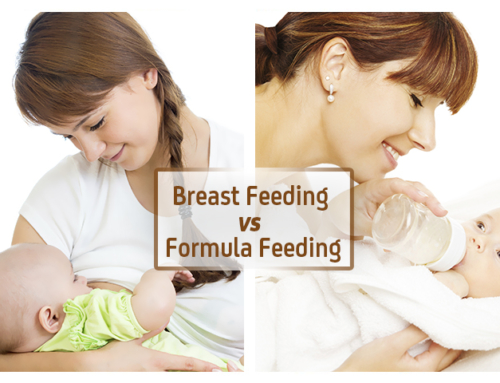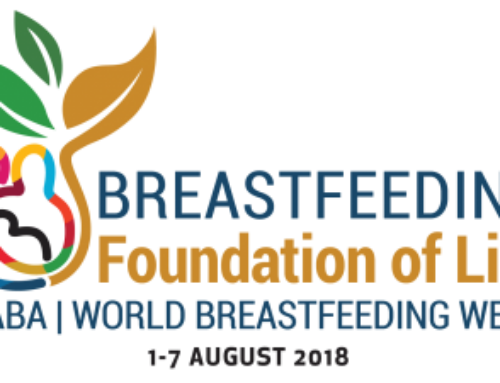The WHO recently released a new meta-analysis looking at the long-term effects of breastfeeding on 5 areas: total cholesterol, blood pressure (both systolic and diastolic), type-2 diabetes, obesity/overweight, and intelligence. I was brought to this piece by other bloggers reporting that there is no evidence of long-term effects of breastfeeding. So I went to read the report. The problem is that the authors seem to disagree with the statement that there are no long-term effects…
Here are the actual conclusions from the researchers based on their meta-analysis of high quality studies only:
Total Cholesterol. “In this updated meta-analysis, the beneficial effect of breastfeeding on total blood cholesterol in adulthood was smaller than that estimated by the earlier review. Compared to the original finding of -0.18 mmol/l in favor of breastfed subjects, the inclusion of new studies resulted in an estimate of -0.03 mmol/L (95% confidence interval: -0.08; 0.01). Because the confidence interval included the nulleffect, these results do not support a long-term programming effect of breastfeeding on blood lipids.”
Conclusion: No effect on cholesterol.
Blood Pressure. “In order to estimate the impact of publication bias and confounding, we pooled the estimates of seven studies with large sample sizes (> 1000 participants) that provided estimates adjusted for socioeconomic status and demographic variables. The mean effect was – 0.71 (95% confidence interval: -1.24; -0.19) for systolic and -0.27 (-0.64; 0.09) for diastolic pressure. These findings are consistent with a small protective effect of breastfeeding against systolic blood pressure, but residual confounding cannot be ruled out.”
Conclusion: There is no effect on diastolic pressure but a small protective effect for systolic blood pressure. As with any well-reported meta-analysis, whenever an effect is small, the authors reported that residual confounding (i.e., the results being due to factors not measured) cannot be ruled out. Does this mean they are invalid? Nope. It means the authors are incredibly careful to suggest we may be missing something, as we might, but that the results as they stand support this small effect.
Obesity. “Our conclusion is that the meta-analysis of higher-quality studies suggests a small reduction, of about10%, in the prevalence of overweight or obesity in children exposed to longer durations of breast-feeding. Nevertheless, it is not possible to completely rule out residual confounding because in most study settings breastfeeding duration was higher in families where the parents were more educated and had higher income levels.”
Conclusion: There is a small effect for obesity. Frankly I found this one surprising because more recent studies seem to suggest it was due to feeding method (scheduled feeds versus feeding on demand) but it seems there is an effect. Again, residual confounding here refers to the fact that the authors are suggesting the statistical methods may not truly control for all of the confounds associated with parents being more educated and having higher income despite these factors being included in the individual studies.
Type-2 Diabetes. “The evidence suggests that breastfeeding may have a protective effect against type-2 diabetes, particularly among adolescents. Obesity/overweight seems to account for part of the association. Generalization from these findings is restricted by the small number of studies and the presence of significant heterogeneity among them.”
Conclusion: From the research there is a relationship between breastfeeding and later lower risk of type-2 diabetes. Like with much research on breastfeeding outcomes, there are only a small number of studies (in this case, small is defined as 10 studies) which may limit the ability to say conclusively that there is an effect.
Intelligence. “This meta-analysis suggests that breastfeeding is associated with increased performance in intelligence tests in childhood and adolescence, of 3.5 points on average. Maternal IQ is an important confounder, but it accounts for only part of this association – even among those studies that adjusted for maternal intelligence, breastfeeding was associated with an additional 2.19 IQ points. The two existing randomized trial on this issue also reported significant benefits of breastfeeding, suggesting that this association is causal.”
Conclusion: Yes, apparently, despite the recent push to say the relationship is solely to do with scheduled versus on-demand feeding, there is a link between breastfeeding and IQ, as measured by standardized tests. One blogger commented that this finding was moot because standardized tests have a standard error of approximately 3 points. Except that the standard error is on a per-person basis, not a group basis. The standard error for a group will depend on the group and the heterogeneity within that group. So if we were looking only at two people, the argument that the standard error is approximately 3 points would hold, but not when looking at large samples such as the ones included herein.
***
What does all this mean? Well, it certainly doesn’t mean that there are no long-term effects of breastfeeding. I hope that much is clear. But it’s worth nothing that for the outcomes examined the effects are small. Now, this should be no real surprise because so many factors influence these health outcomes. In fact, when we look at something like obesity, we should be amazed that almost any effect shows up after so many years when we have so many food-related factors in our society that contribute. Same with IQ. We’re looking beyond known hereditary effects, schooling, and SES and still finding an effect. To me this is incredible.
Another factor that we must consider is that we’re looking only at 5 outcomes. Health-wise, we know that the immediate effects of breastfeeding are great on other outcomes, like childhood cancer, and yet we have no research looking at the long-term effects there. There may not be any, but it would be worth examining.
Finally, none of this negates the well-known and well-documented beneficial effects of breastfeeding on infant health. I get annoyed when pieces come out trying to say that because there the long-term effects are small, we discount everything. No. We certainly don’t go around telling people that breastfeeding will solve the world’s ills (though in developing countries it can do quite a bit), but we also don’t go around saying there’s no difference and it doesn’t matter. On individual levels, it may not matter as much, depending on a host of factors. But on a population level? It matters immensely. And this is something that formula-feeding advocates tend to forget because they become so focused on the individual level (sometimes rightfully so as no mother should be shamed for using formula). When speaking about policy and public interests, we have to consider greater effects and even small long-term effects such as these matter in the grand scheme. How they play into one individual’s decision to breastfeed or not, that is a different matter entirely.






It is very hard to read your articles from the site with the photographs in the background.
Can you please change the settings? Or have an option to just the text alone without having to struggle to see the print superimposed over the photos?
There’s usually only 1 photo and no one has ever complained about this before. What browser are you using?
The problem is that formula is viewed as normal, and so standards for IQ, immunity and overall health have been lowered, so breastfeeding looks like it’s for over achievers, lol. Breastfeeding isn’t BETTER than formula, it’s normal baby food. Formula is the intervention, when a mother cannot physically breastfeed. Too many women have an understanding that formula vs breastfeeding is a simple choice and it’s ok to just choose formula. It shouldn’t be a choice, formula is not natural and it’s not healthy. Yes children survive, and thrive, but it has been studied to show that it causes obesity and illness more than breastfeeding prevents those things. So the choice is simple: breastfeed because you are DESIGNED to do it. My mother didn’t breastfeed because she was told not to, not because she physically couldn’t.
My gripe is they never look at a truly breastfed group of babies. Most of these studies count babies who are fed supplementary food/ formula as ‘breastfed’ — if they are breastfed at all. But what about SOLELY breastfed babies?
I would argue we will never know the true benefits of breastfeeding until we study babies who are exclusively breastfed in infancy, never receive formula, and who continue ‘comfort’ nursing to the age of natural weaning, say age 2 or 3.
This study studies babies who were in some cases BARELY breastfed, and there is STILL an advantage, which is an even stronger endorsement of the value of breast milk. I also believe that the skin to skin stimulation inherent in breastfeeding is probably more neurally-stimulating, and may account for some IQ boost as well.
Did you see the post I did on this exact issue in the research?
[…] an increased performance in intelligence tests during childhood and adolescence (see here and […]
[…] an increased performance in intelligence tests during childhood and adolescence (see here and […]
[…] Possibly an increased performance in intelligence tests during childhood and adolescence (see here and here) […]